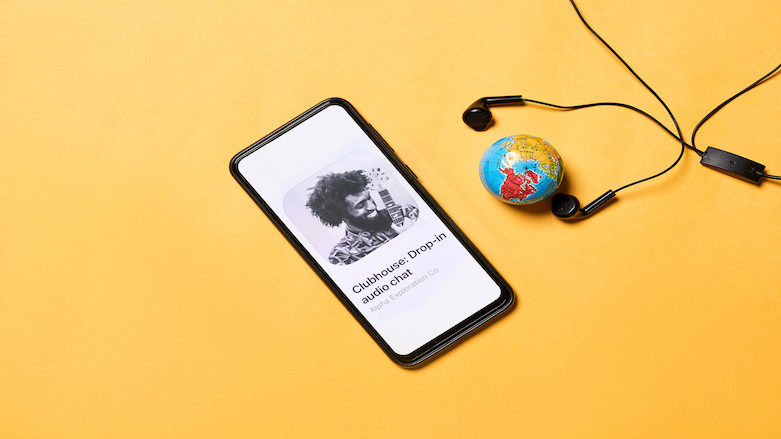Young Kurds embrace Clubhouse as a platform for open discussion

ERBIL (Kurdistan 24) – The Kurdistan Region’s youth have flocked to a new social media platform on which they can exchange ideas on a variety of topics, mainly the social issues and barriers they face in society.
Clubhouse, an audio-based, invitation-only app, recently took off in popularity around the world, particularly in the Middle East and the Kurdistan Region, where users can speak freely about subjects that concern them. Available only on Apple’s iOS platform to people with a referral link, it nonetheless boasts about 10 million users worldwide and allows thousands to spontaneously join an audio conversation in virtual “rooms” or through planned events and clubs.
Kurdish users on the platform are mainly concerned with social justice, including rights for the LGBTQ+ community and gender equality, but also the environment and animal rights.
“There have been many discussions on gender equality, LGBTQ rights, [social media] influencers’ roles, NGOs, and activism,” said Shko Shwan, a Fulbright Student studying for a Masters in Educational Technology.
“The sole purpose of these talks is to socialize with each other, listen to other people's opinions, and reach common ground,” according to the 29-year old, who co-hosts weekly discussions on the app from his home in the Kurdistan Region.
“There has not been any other medium like Clubhouse motivating people to raise their hands and talk,” he told Kurdistan 24.
When a wild boar was killed by Newroz picnic-goers near Sulaimani last month, Kurdish users quickly brought the matter to the platform, discussing the nature of killing wild animals and importance of preserving the Kurdistan Region’s wild spaces.
Frank Discussion and Understanding
However, a chunk of the topics being discussed are more personal: people across Kurdistan also see Clubhouse as a safe place to discuss their own experiences with topics such as politics and mental health.
Clubhouse “helped me to freely join clubs that deal with mental health which is so far doing me well,” Tablo Ameen, a small business owner who is also studying International Relations and Diplomacy, told Kurdistan 24.
Ameen, founder of Gulabagh Design – which combines modern fashion and traditional Kurdish taste – takes advantage of the platform for her business as well.
“It helped me with getting new business ideas for my small business,” the 21-year-old said, adding that musicians and artists are also active on the platform, where they can hold live concerts unhindered by COVID-19 restrictions.
Conflicting views fueled by cultural and religious differences frequently result in heated debates in the chatrooms, but rather than polarizing users, it fosters deeper conversation and understanding, according to Shwan.
“The fascinating part of Kurdish users on Clubhouse is that they rejoin the groups of their opposition and remain respectful without holding grudges from previous conversations,” he said. His fellow Kurdish users take advantage of the platform to “raise awareness and educate others.”
Although barely a year old, Clubhouse has faced challenges in other parts of the Middle East. Recently Oman banned the app over claims it lacked the proper operating permit, and users in the United Arab Emirates complain about audio issues, which some activists fear is intentional censorship by the authorities.
As for its impact in Kurdistan, “people consider it a positive because everyone has the ability to learn/teach or simply participate in any subject that they're interested in,” says Ameen.
“On the society as a whole? I think it'll take more time to have a touch of effect since it's a new social app and isn't very known yet.”
Editing by Joanne Stocker-Kelly
